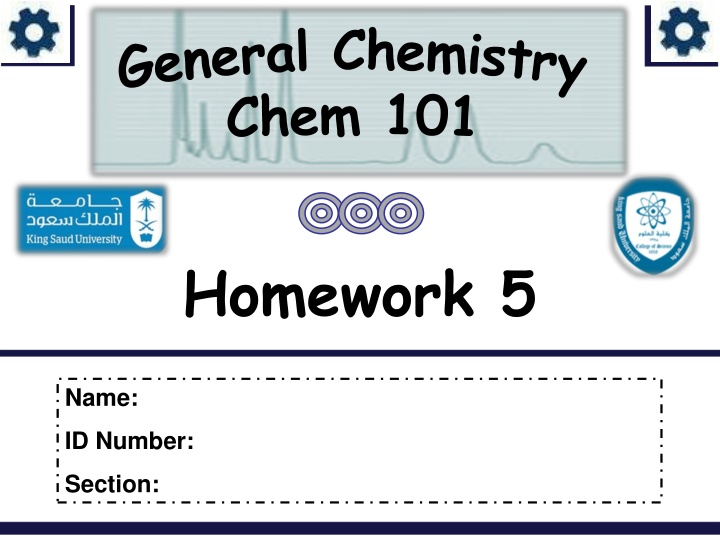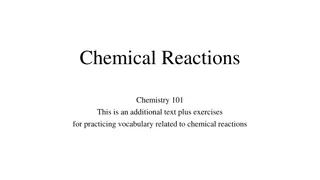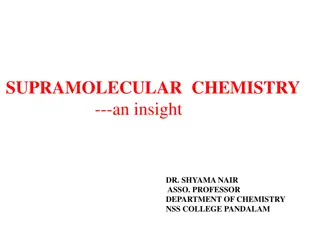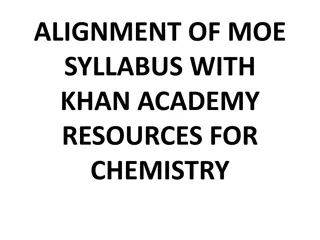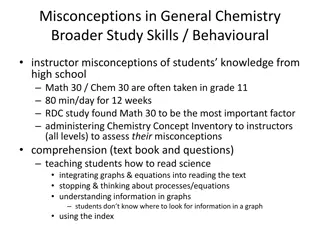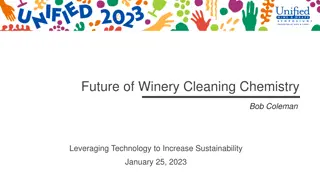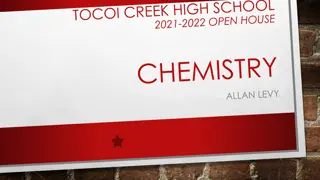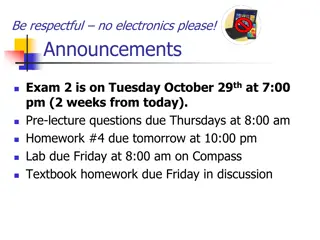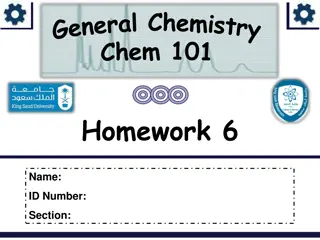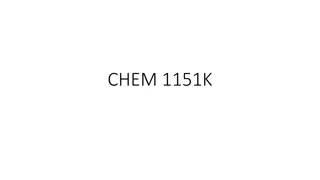General Chemistry Chem 101 Homework Review
This homework assignment covers various topics in general chemistry, including gas expansion work calculations, heat transfer, enthalpy of formation, and specific heat calculations. Each question presents a different scenario for students to apply their knowledge and problem-solving skills. The questions range from determining work done by a gas expanding against different pressures to calculating heat released during a cooling process. Additionally, it includes the calculation of the standard enthalpy of formation of carbon disulfide. These problems are designed to test understanding and application of fundamental principles in chemistry.
Download Presentation

Please find below an Image/Link to download the presentation.
The content on the website is provided AS IS for your information and personal use only. It may not be sold, licensed, or shared on other websites without obtaining consent from the author.If you encounter any issues during the download, it is possible that the publisher has removed the file from their server.
You are allowed to download the files provided on this website for personal or commercial use, subject to the condition that they are used lawfully. All files are the property of their respective owners.
The content on the website is provided AS IS for your information and personal use only. It may not be sold, licensed, or shared on other websites without obtaining consent from the author.
E N D
Presentation Transcript
General Chemistry Chem 101 Homework 5 Name: ID Number: Section:
Question 1 A gas expands from 264 mL to 971 mL at constant temperature. Calculate the work done (in joules) by the gas if it expands (a) against a vacuum and (b) against a constant pressure of 4.00 atm.
Question 2 A gas expands and does P-V work on the surroundings equal to 279 J. At the same time, it absorbs 216 J of heat from the surroundings. What is the change in energy of the system?
Question 3 Calculate the heat evolved when 266 g of white phosphorus (P4) burns in air according to the equation P4(s) + 5O2(g) P4O10(s) H = -3013 kJ/mol
Question 4 An iron bar of mass 869 g cools from 94 C to 5 C. Calculate the heat released (in kilojoules) by the metal. Specific heat of iron = 0.444 J/goC
Question 5 Calculate the standard enthalpy of formation of carbon disulfide (CS2) from its elements, given that The standard enthalpy equation for CS2 is: C(graphite) + 2S(rhombic) CS2(l)
